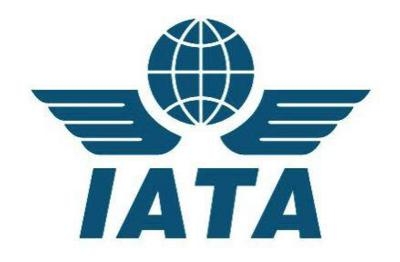Resolution Adopted Unanimously At The Organization's Annual Meeting
The International Air Transport Association (IATA) 70th Annual General Meeting (AGM) unanimously adopted a resolution that calls on governments and industry to work together on a balanced package of measures to effectively deter and manage the significant problem of unruly air passenger behavior. Such behavior includes committing physical assault, disturbing good order on board or failing to follow lawful crew instructions.

“This resolution confirms the determination of airlines to defend the rights of their passengers and crew. Everybody on board is entitled to enjoy a journey free from abusive or other unacceptable behavior. Many airlines have trained both ground staff and cabin crew in procedures not only to manage incidents of unruly behavior but also in measures to prevent them. But a robust solution needs alignment among airlines, airports, and governments,” said Tony Tyler, IATA’s Director General and CEO.
The adoption of the AGM Resolution follows a Diplomatic Conference called by the International Civil Aviation Organization (ICAO) at which governments agreed to modernize and strengthen the Tokyo Convention 1963. The result, known as the Montreal Protocol 2014 (MP14), provides a more practically effective deterrent to unruly behavior by extending the legal jurisdiction for such events to the territory in which the aircraft lands.
“Governments have recognized that unruly passenger behavior is a serious issue and we applaud the adoption of MP14 at an ICAO Diplomatic Conference earlier this year. Now, governments must ratify what they have agreed to,” said Tyler.
The definition of unruly behavior is wide and includes non-compliance with crew instructions, consumption of illegal narcotics, sexual harassment, and physical or verbal confrontation or threats. In 2013, the number of incidents of unruly behavior voluntarily reported to IATA by airlines reached some 8,000 cases. Intoxication, often resulting from alcohol already consumed before boarding, ranks high among factors linked to these incidents. Other causes include irritation with another passenger’s behavior, frustration with rules such as smoking prohibitions or use of electronic devices or emotional triggers originating prior to flight.
Reflecting the broad number of factors associated with unruly behavior, the Resolution’s core principles on unruly passengers take a wide-ranging approach to the issue. In addition to calling on governments to ratify MP14, the core principles include calls for:
- Airlines to ensure that they have in place corporate policies and appropriate training programs for cabin crew and ground staff to enable them to prevent or manage disruptive passenger behavior, including at check-in, during security search, and at the gate
- Governments and airlines to raise awareness of the consequences of unruly behavior
- Airports and airport concessionaires such as bars and restaurants to implement procedures that could help prevent unruly behavior on flights
“Each incident of unruly behavior marks an unacceptable inconvenience to passengers and crew. A united and balanced approach to the prevention and management of unruly passengers by governments and industry is vital. Governments should adopt all the legal powers at their disposal to ensure unruly passengers face the appropriate consequences for their actions. Airlines, airports, and others must work together to implement the right procedures and train staff to respond effectively to such instances,” said Tyler.
 ANN's Daily Aero-Term (04.25.24): Airport Rotating Beacon
ANN's Daily Aero-Term (04.25.24): Airport Rotating Beacon ANN's Daily Aero-Linx (04.25.24)
ANN's Daily Aero-Linx (04.25.24) Klyde Morris (04.22.24)
Klyde Morris (04.22.24) Airborne 04.24.24: INTEGRAL E, Elixir USA, M700 RVSM
Airborne 04.24.24: INTEGRAL E, Elixir USA, M700 RVSM Airborne 04.22.24: Rotor X Worsens, Airport Fees 4 FNB?, USMC Drone Pilot
Airborne 04.22.24: Rotor X Worsens, Airport Fees 4 FNB?, USMC Drone Pilot



